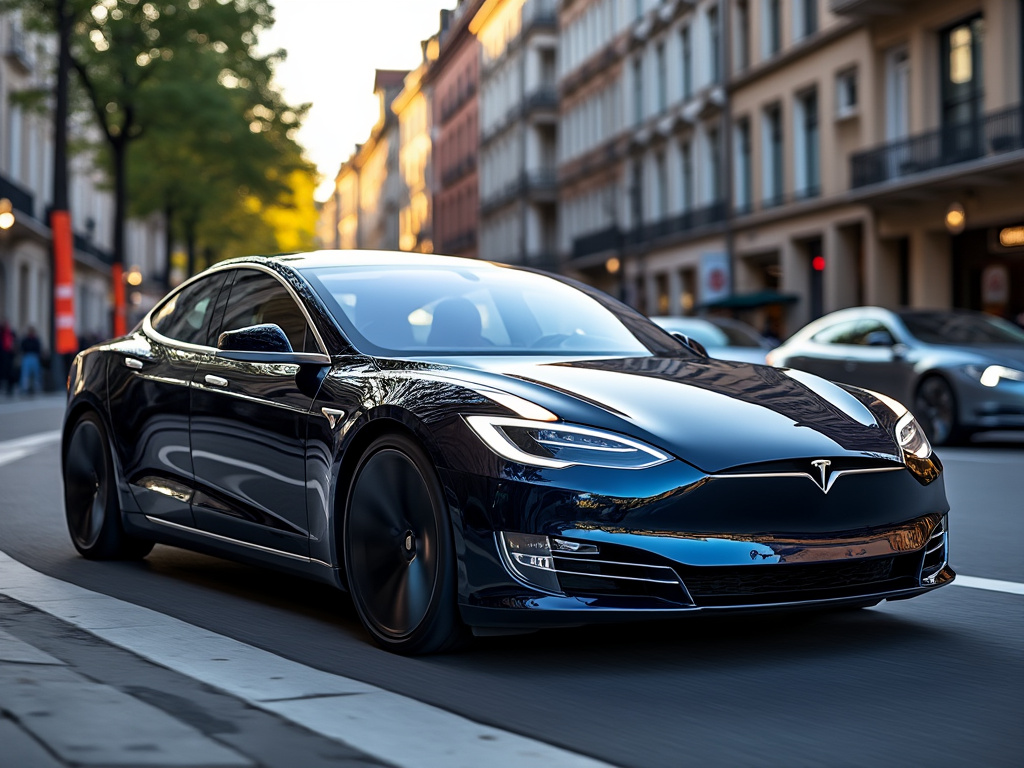
Tesla Reports Dramatic Sales Decline Amid Market Challenges
The electric vehicle manufacturer's sales in Germany have dropped by 70%, influenced by rising competition, supply chain issues, and quality concerns.
Tesla, the leading electric vehicle manufacturer, has experienced a significant decline in sales, reporting a 70% drop in Germany over the past year.
This decrease has been attributed to a confluence of factors affecting the company beyond the public persona of its CEO, Elon Musk.
One principal challenge is the escalating competition within the electric vehicle market.
A multitude of established automotive companies and new entrants are rapidly introducing electric models, gaining market share that Tesla previously held.
This increased competition has created a crowded market landscape, resulting in declining sales figures for the manufacturer.
In addition to competitive pressures, Tesla has faced supply chain disruptions, particularly in semiconductor manufacturing.
Such interruptions have impaired production capabilities for numerous automakers, including Tesla.
Consequently, these disruptions have led to delays in vehicle deliveries and increased production costs, which may dissuade potential buyers.
Further complicating the landscape, Tesla has come under scrutiny regarding its quality control.
Reports of inconsistent build quality and reliability concerns have surfaced, potentially leading to adverse consumer perceptions and lowered customer satisfaction.
These issues may encourage some consumers to explore alternatives offered by other manufacturers, perceived to provide higher quality or reliability.
In response to the declining sales figures, Tesla has initiated strategic price reductions across several vehicle models aimed at stimulating demand.
This pricing strategy is also a reaction to the varying government incentives for electric vehicles, which differ by region and play a significant role in influencing consumer purchasing behavior.
The regulatory environment remains a critical aspect of Tesla's market strategy.
Numerous countries are revising their policies regarding electric vehicle incentives and emissions standards, which can either benefit or obstruct Tesla’s sales initiatives.
The shifting landscape of governmental regulations concerning environmental standards can notably influence market dynamics and consumer preferences.
Amid these challenges, Tesla is also tasked with scaling its operations effectively while attaining profitability in an expanding market.
Ongoing public and regulatory scrutiny presents additional layers of complexity for the company.
These multifaceted issues paint a challenging picture for Tesla as it navigates a pivotal phase in the evolving electric vehicle sector.
This decrease has been attributed to a confluence of factors affecting the company beyond the public persona of its CEO, Elon Musk.
One principal challenge is the escalating competition within the electric vehicle market.
A multitude of established automotive companies and new entrants are rapidly introducing electric models, gaining market share that Tesla previously held.
This increased competition has created a crowded market landscape, resulting in declining sales figures for the manufacturer.
In addition to competitive pressures, Tesla has faced supply chain disruptions, particularly in semiconductor manufacturing.
Such interruptions have impaired production capabilities for numerous automakers, including Tesla.
Consequently, these disruptions have led to delays in vehicle deliveries and increased production costs, which may dissuade potential buyers.
Further complicating the landscape, Tesla has come under scrutiny regarding its quality control.
Reports of inconsistent build quality and reliability concerns have surfaced, potentially leading to adverse consumer perceptions and lowered customer satisfaction.
These issues may encourage some consumers to explore alternatives offered by other manufacturers, perceived to provide higher quality or reliability.
In response to the declining sales figures, Tesla has initiated strategic price reductions across several vehicle models aimed at stimulating demand.
This pricing strategy is also a reaction to the varying government incentives for electric vehicles, which differ by region and play a significant role in influencing consumer purchasing behavior.
The regulatory environment remains a critical aspect of Tesla's market strategy.
Numerous countries are revising their policies regarding electric vehicle incentives and emissions standards, which can either benefit or obstruct Tesla’s sales initiatives.
The shifting landscape of governmental regulations concerning environmental standards can notably influence market dynamics and consumer preferences.
Amid these challenges, Tesla is also tasked with scaling its operations effectively while attaining profitability in an expanding market.
Ongoing public and regulatory scrutiny presents additional layers of complexity for the company.
These multifaceted issues paint a challenging picture for Tesla as it navigates a pivotal phase in the evolving electric vehicle sector.
AI Disclaimer: An advanced artificial intelligence (AI) system generated the content of this page on its own. This innovative technology conducts extensive research from a variety of reliable sources, performs rigorous fact-checking and verification, cleans up and balances biased or manipulated content, and presents a minimal factual summary that is just enough yet essential for you to function as an informed and educated citizen. Please keep in mind, however, that this system is an evolving technology, and as a result, the article may contain accidental inaccuracies or errors. We urge you to help us improve our site by reporting any inaccuracies you find using the "Contact Us" link at the bottom of this page. Your helpful feedback helps us improve our system and deliver more precise content. When you find an article of interest here, please look for the full and extensive coverage of this topic in traditional news sources, as they are written by professional journalists that we try to support, not replace. We appreciate your understanding and assistance.











